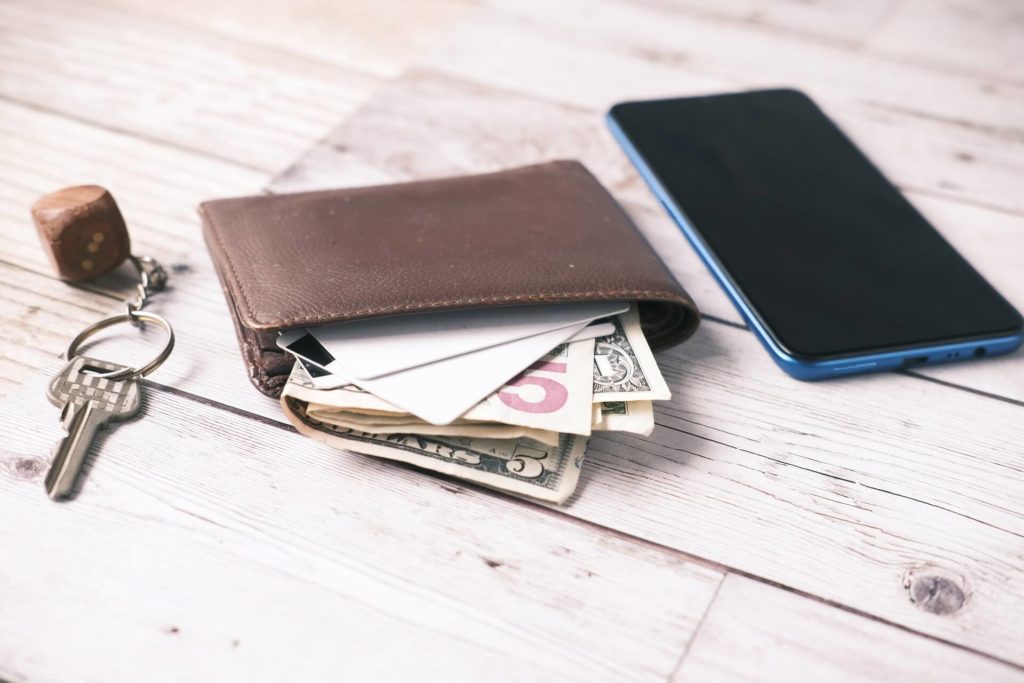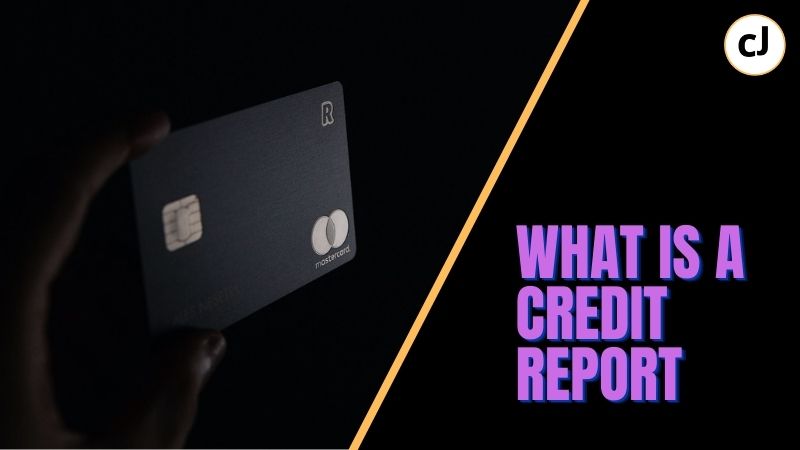If you have applied for any loan or job, you might have seen people talking about your credit report. So, has it ever intrigued you to know what a credit report is? If yes, keep reading.
A credit report is a finance-related term used to find your credit activity. And what does it mean? Well, in short, it replicates all credit-related movements you have been into in the past.
But how does it affect your overall image? And what is a credit score? And why at all is it important? Well, we have answered all these queries ahead in this article. So, if you are ready, let’s get started.
Quick Navigation
What is a Credit Report?
Now, let’s get straight to the point. What is a credit report? A credit report is a report on your credit activities, used to read your history and performance to decide whether or not to lend you money anymore. So, your credit report basically tells your lender about your financial performance over the years.
So, it is a statement consisting of your credit activities and present credit situation. Now, the credit report plays a huge role when it comes to maintaining your corporate profile. For example, if you want to apply for a loan or a job, the lender or employer might check your credit report to decide whether to offer it to you or not.
But how is your credit report made? Or, who makes the credit report after all? Well, one person might have one or more credit reports. Let’s read ahead to know how a credit report is made, after all.
How is Your Credit Report Prepared?

In most cases, people might have more than one credit report. But, how are these reports made? Well, credit reports, in most cases, are prepared by credit reporting companies. These companies are often known as consumer reporting agencies or credit bureaus.
Now, their primary job is to find and store your data submitted by various credit card companies, lenders, financial companies, etc.
This report also includes your performance in terms of loan repayment. For example, if you have been regular in paying your EMIs, or never missed a repayment, your credit report will show that. But, if it were not so, you might have a bad impact on your credit report.
Now, this report tells your lender whether or not to lend you any more money. Lenders can access these reports whenever they apply for a loan and see your activities in the past. Based on the report, they might decide what amount at which interest they should offer you.
Other businesses around you might also want to access your credit report before allowing you any of their services. For example, if you rent a home, take cable TV connection, internet, etc., you might get a credit report check. In short, whenever you apply for any loan, job, rent, or something, you let your lender or employer look into your credit report.
What Information Does Your Credit Report Have?
A typical credit report has four sections. Each of these sections has valuable information about your financial activities, personal data, etc. Let’s peek into a detailed overview of how a credit report looks and what information it stores within it for the authorities to verify.
Section 1: Personal Information
You will find your personal information on the top of your credit report, like name, address, social security number, etc. The identifying information is a verification type prepared to inform the correct details about oneself. The information stores in this section are:
- Your names, as used in any credit accounts, including the nicknames.
- Addresses- both current and former.
- Your date of birth
- Your social security number
- Phone numbers.
Now, you might find different names and details recorded in this section. Well, it might have happened because other lenders had made mistakes in noting down your actual data. Hence, this information might vary.
But, in short, this first section gives your lender, employer, or anyone going through your credit report an overview of your personal information.
Section 2: Credit Information
In this section, a detailed report of your credit activities is enlisted. In all cases, these reports are submitted to the credit authorities by the lenders and creditors. It also incorporates details like the type of accounts, such as mortgage, student loan, credit card loan, vehicle loan, etc.
Apart from these, it consists of detailed data on the allowed credit or when an account was opened. The credit limit, account balances, and payment history are some of the things mentioned in detail here.
So, this section, in short, is an overview of your activities in the line of credit. The information here is the ones submitted to the authorities by your lenders.
Section 3: Public Records
Now, the third section of your credit report includes details or public records, such as bankruptcies, tax liens, and judgment. This portion is important to decide your performance over time.
It tells the reviewer whether you have any bad past record, such as going bankrupt. Also, the judgments of several credit-related cases may influence your credit limit and amount.
Section 4: Inquiries
The fourth section of the report stores data about all the requests that have been done before to access it. In here, you can see all of the entities that have requested to see your credit report before. In most cases, these are the names of the authorized agencies or companies to whom you have applied for a personal loan.
Who Can Access Your Credit Report?
Different organizations and authorities can have access to your credit report and credit scores. In short, if you apply for a loan, service, or anything related to checking your credit report, the organization reserves the right to verify before lending you any money. Below we have mentioned some of the companies that can pull out your credit report based on your application.
Bank
If you are going to open an account in any bank, the entity might pull out your credit report to verify your creditworthiness. It might be the case even if you do not have a credit card attached to this specific account. But then again, why do banks check your credit score or credit report?
In most cases, the bank checks your credit report to decide your creditworthiness. It doesn’t mean that you are going to get a credit card. But, if someone is not creditworthy, he might overdraw or abandon the account. And this is not good for business at all.
Sometimes, in the case of overdraft protection, the bank may also pull your credit report. Overdraft protection is considered to be a line of credit. So, if you are going to avail of these services from your bank, your credit report might get verified.
Credit Lenders
A potential creditor or current credits may also check your credit report to justify your creditworthiness. For example, auto lenders, credit card issuers, and mortgage lenders have the right to check your credit report before offering you their services. And, not to mention, credit history is one of the major considerations in determining your worthiness.
First of all, your credit history instantly tells a borrower whether they should grant you money or not. If you have a bad credit history reflected on the credit report, the lender might not want to offer you his credit service.
Again, the credit report helps the lender to set the terms for your credit card or limit. Based on your past financial interactions, several norms, terms, and limitations are prepared. Credit report plays a vital part in deciding several major factors, including your trustworthiness in the line of credit.
Utility Companies
Utility companies can also pull out your credit report. Whenever you apply for any utility services, such as a cell phone, you might get your credit report checked. Previously in the U.S., it was a mandatory check based on which the companies could decide whether or not they should offer you their services.
However, at present, most of the states have this rule where the companies can not deny you utility services just because you have a bad credit report. However, it is still an important consideration, and the utility companies might check your credit report before selling their services to you.
Student Loan
Student loan lenders might pull out your credit report to consider whether to lend credit or not. There are certain circumstances for this, though. For example, when a parent applies for a PLUS loan, their creditworthiness might get checked. And for that, the only way of checking is checking the credit report.
Again, if you already have had a federal loan going, you won’t get another federal loan unless you have a payment plan for the existing one already. Also, if you apply for a private loan (something that the federal government does not issue), the lender might pull out your credit report to verify your creditworthiness.
Landowner
If you are going to get in a rented place, the landowner might want to verify your credit report to find your financial past. It is mostly done to confirm whether or not you will be able to pay the rent. A bad credit report might have a serious impact on the lender’s decision.
What is The Connection between A Credit Report and A Credit Score?

So, what is the difference between a credit report and a credit score? Well, credit reports and credit scores are two different things. When you are talking about your credit report, it is actually a statement comprising your credit history and finance-related data. As we mentioned before, credit reports have several sections having different information. For example, it shows the
But, when it comes to credit score, it is basically a score calculated based on the information and data provided by your credit report. One might have different credit scores. You might find your credit score varying within a short time span. And there are a lot of ways to see your credit scores as well.
In most cases, credit scores differ depending on the data entered or reported by the agencies. Different agencies also follow different credit scoring models. So, that may also affect the overall score.
In short, credit score variations are mostly caused by:
- The agency providing the information
- The information.
- The scoring model as followed by the reporting agency.
- The type of the loan.
- Also, the day when the score was calculated.
If your score is higher, there is a better possibility of receiving loans at a lower interest. Errors in content reporting might result in having a lower score. And lower scores mean low chances of granted loans, that too at higher interests.
How to Remove Late Payments From Credit Report
Late payments are common and may happen to anyone. But does it look good on your credit report? Well, no! Late payments can also affect your overall credit score and reputation. So, it is a negative impression on your credit report.
And, can you remove it?
Well, YES! Late payment records can be removed from your credit report in two specific ways. The first one is, of course, through negotiating. And the second one is when you think there might be some mistakes.
Yes, late payment reports can be found on your credit report due to many reasons. Let’s see how to remove late payments from your credit report.
Goodwill Adjustment Letter
If you have made a late payment, it will somehow appear on your credit report as the lender reports it to the agency. However, you can stop it from happening.
All it takes is to ask your lender not to report it anyway. If you have had a good relationship with your lender, you might write a letter explaining the delay.
In most cases, most loan agencies are very strict about late payments and report them in any way. But, there’s no harm in asking. They could agree to your terms and forgive your late payment.
You can also offer to pay for a delete later. It shows that you understand your part and agree to pay the whole outstanding provided they cease from reporting it to the agency.
However, this method should only be used when you are certain about the late payment. But, if you think or find that there’s a mistake in your credit report, you can follow these ways:
File A Dispute
You can file a dispute with the agency that generated your credit report if you find errors in your report. This dispute is a kind of legal letter sent both to the agency and your creditor, who are asked to check the claim within 30-45 days.
If they find the claim to be true, they have to remove the late payment record from your credit report. And, if, after a thorough investigation, the bureau finds the information to be correct, it won’t remove it. In both cases, you will be informed soon.
Conclusion
So far, by now, you must have understood how your credit report is nothing but a statement of your financial journey. It has all the records of your loans, payments, late payments, personal information, along with the names of the entities who looked into it. It also determines your credit score, which is a big consideration when you apply for a loan.
Hence, if you find any mistakes in your credit report that might affect the overall credit score at any point in time, you should report it or settle it down with the bureau. That said, we hope we could answer all your queries and clear your doubts.

